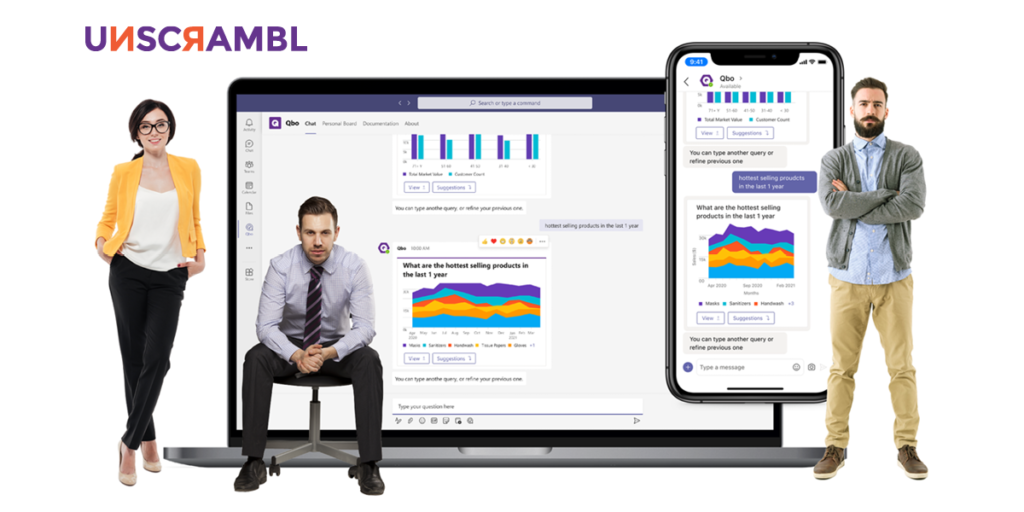 6 Minutes
6 Minutes

Defining & Meeting your Business KPIs with the help of Business Intelligence
We have all heard the common adage – what gets measured gets improved.
While we have KPIs for measuring performance in our various departments, from marketing to sales, the same has to be applied to our business intelligence efforts.
Business intelligence (BI) helps transform a company’s data into actionable insights for better decision making by leaders in an organization.
But are you maximizing its potential to really drive growth and change to your organization?
In this article, you’ll understand how to effectively define your KPIs and learn the key requirements your BI solution must have to better reach your KPI goals.
How To Define Your Business KPIs For Business Intelligence Adoption (3 Steps To Take)
Data is only meaningful once it is analyzed and interpreted – and the same goes for KPIs. They are only useful once correctly defined.
By choosing the right KPIs, you will be able to focus the entire team on an objective that will improve operations in your business and drive it forward to the next level.
For example, if you are looking to increase sales in your software company, you’ll want to focus on sales KPIs such as the ratio of demo conversions, the customer retention rate as well as the conversion rate on your digital marketing efforts.
This allows you to ask questions, powered by conversational analytics, to your business intelligence solution such as:
“What is the Customer retention rate over the last 6 months?”
“What percentage of revenue is contributed by our outbound sales team?”
“What is the ratio of inbound leads converted to leads lost over the last financial year?”
Establishing the right KPIs allows you to ask the right questions to correctly utilize your business intelligence solution to ensure your operations are improving and to identify where it is currently lacking.
Step 1: Ensure The KPIs Are Key To Your Overall Business Goal
While it is rather tempting to process your data to deliver out a whole list of metrics, are the insights valuable to help track the KPIs that will help you reach your business goal?
First, ask yourself three key questions:
- What is my desired outcome for the business or my department?
- Why does this outcome matter to my organization or department?
- What are the metrics that directly measure this outcome’s progress?
Framing your KPI in this manner immediately adds clarity to the end goal and metrics – now you can easily use business intelligence to gain insight from your data.
Step 2: Ensure Your KPIs Are Actionable
There are many things in business that are beyond our control, and that shouldn’t contribute to measuring the progress of your KPI.
A great way to ensure your KPIs is actionable is to evaluate the goal according to the SMART criteria.
Ideally, your KPI or goal should be Specific, Measurable, Attainable, Relevant as well as Time-bound.
So ask yourself:
- Is my KPI specific enough?
- Is progress towards the KPI quantifiable and measurable?
- Can my team or department realistically hit the KPI?
- How relevant is the KPI towards the bigger picture or goal of my organization?
- What is the time-frame for my department to hit or surpass this KPI?
Step 3: Develop a Set of Questions to Understand Movement of your KPIs
Now that you have defined your KPIs, the next step is to develop a set of questions that will need answering from the data being generated by your organization.
With the right questions, you can consolidate the right metrics together for easy visualization to understand your KPI progress.
And if your business intelligence is powered by conversational analytics, you can immediately just ask it as you would in a normal conversation and get back the relevant insights.
Take Healthcare For Example
Let’s say you are running a hospital and a KPI is to maximize the overall bed occupancy rate to around 85%, you’ll want to ask:
“What is the bed occupancy rate monthly for the last 8 months?”
“Why did the bed occupancy rate in Sept 2020 decline compared to Aug 2020?”
“What are the key factors driving bed occupancy rate?”
“What is the predicted bed occupancy rate next month?”
Asking the right questions will allow you to effectively utilize your organization’s data to get insights that can be acted on – such as developing a better bed allotment strategy or managing the schedules of doctors better.
Perhaps You Are In Retail
And one of your core KPIs is increasing revenue for your stores. You should be using your business intelligence to answer relevant questions such as:
“What is the overall inventory turnover of all stores for the last 12 months?”
“What was the average amount of sales per transaction and which store is bringing in the least amount of revenue?”
With the right questions defined, you’ll be able to target the right data sources and metrics for a better business intelligence analysis.
Ensuring Business Intelligence Adoption In Your Organization To Help Hit Those KPIs
A higher organizational adoption of business intelligence not only allows users to enjoy the benefits such as improved collaboration and on-demand insights, it also fosters a culture of self-empowerment and strategic data-driven decision making.
And in order to achieve this, your BI solution will be required to meet certain standards, from being easy to use to intuitive reporting to add value to your team.
This allows your organization to better reach their KPI goals.
Business Intelligence Requirement #1: Timeliness Of Data Delivery & Analysis
Time is money and speed is king.
How fast does your BI platform deliver the insights that the user desires? The faster the delivery, the more satisfied the user will be.
This is especially so when quick decisions have to be made and insights have to be shared such as during an interaction with a disgruntled customer or during a board meeting where difficult questions are being asked.
Business Intelligence Requirement #2: Time to get Insights from Tools
How easy is it for your team to effectively use your BI solution?
Do they need to read a manual to set up complicated dashboards or can they use it naturally by asking conversational questions?
Do you hear more complaints about it or praises from your employees due to the time-savings they enjoy?
A good BI solution should not only be effective in analyzing data, but it also has to be easy to use across the organization.
Business Intelligence Requirement #3: Data Quality
How accurate and clean is the data you are receiving?
BI adoption only increases when stakeholders and employees trust the quality of the insights being generated by the platform – after all, business decisions are being made using it.
Business Intelligence Requirement #4: Report Comprehension & Relevance
Mining and process data quickly is good, but is it reported in a format that is easily understood?
An agile BI solution not only gives you the insights you requested, it should be delivered in highly relevant formats that are natural to the user.
A simple straightforward question can be answered simply and directly while a more complex query might require visualizations and charts for users to interpret the insights quickly and accurately.
Business Intelligence Requirement #5: Data Security
At the end of the day, your data should only belong to you and should be treated as highly confidential.
That is the whole point of business intelligence after all – gaining the competitive edge through your own data.
Have there been any breaches or leaks of your data on the platform?
Is it possible to restrict certain datasets from being analyzed through implementing user levels?
While the advantages of business intelligence are undeniable, organizations will have to ensure safe and responsible data democratization to protect the company, trade secrets and proprietary data.
Ideally, user adoption of your business intelligence should be actively encouraged and it is important to track how well it is being utilized throughout your organization.
Keeping track of these BI
requirements will allow you to determine if your BI solution is a winner or if you’ll have to find an alternative that is more intuitive for your company.
Achieve Your Business Goals Better With Well-Defined KPIs
Whether you are an analyst or a business leader, your performance measurement is only as good as your KPIs.
While business intelligence will have you gain faster insights, it is only as good as your KPI roadmap to success.
Looking for a powerful business intelligence solution to help you drive growth throughout your organization?
Give Qbo a try with a free 14-days trial and gain actionable insight into your for better decision making!




